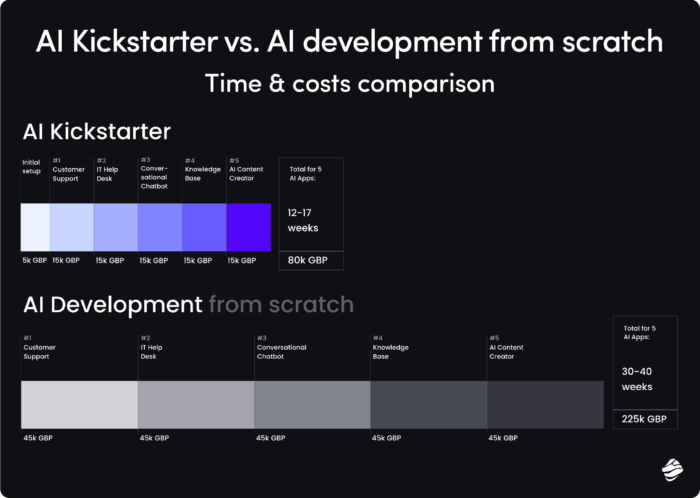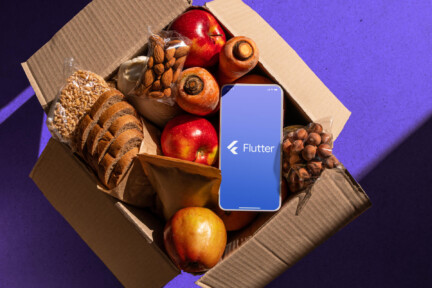Foodtech is one of the industries that has truly gained momentum over the past two decades. Its growth has been fueled by the rise of mobile devices, shifts in consumer awareness, and changing eating habits – accelerated further by the pandemic, which made quick commerce and food delivery apps a staple of everyday life.
Innovation in the food and beverage sector is now more essential than ever, especially in a world increasingly affected by climate change and fragile supply chains. AI, proprietary manufacturing technologies, and new mobile solutions are transforming how we eat, plan our diets, and access food –making health and nutrition central pillars of modern consumption.
While countless startups are born in tech hubs like San Francisco or New York, our ranking reveals that Europe is an exceptionally fertile ground for food tech innovation. Discover the most promising food tech startups of 2025 and get inspired!
Juicy Marbles
Location: Ljubljana, Slovenia
Launched: 2020
Specialization: Plant-based whole-cut meats (e.g. marbled steaks, ribs)
What makes them stand out: They created the world’s first marbled plant-based filet mignon using a unique physical texturing technology (no 3D-printing or cell culture)
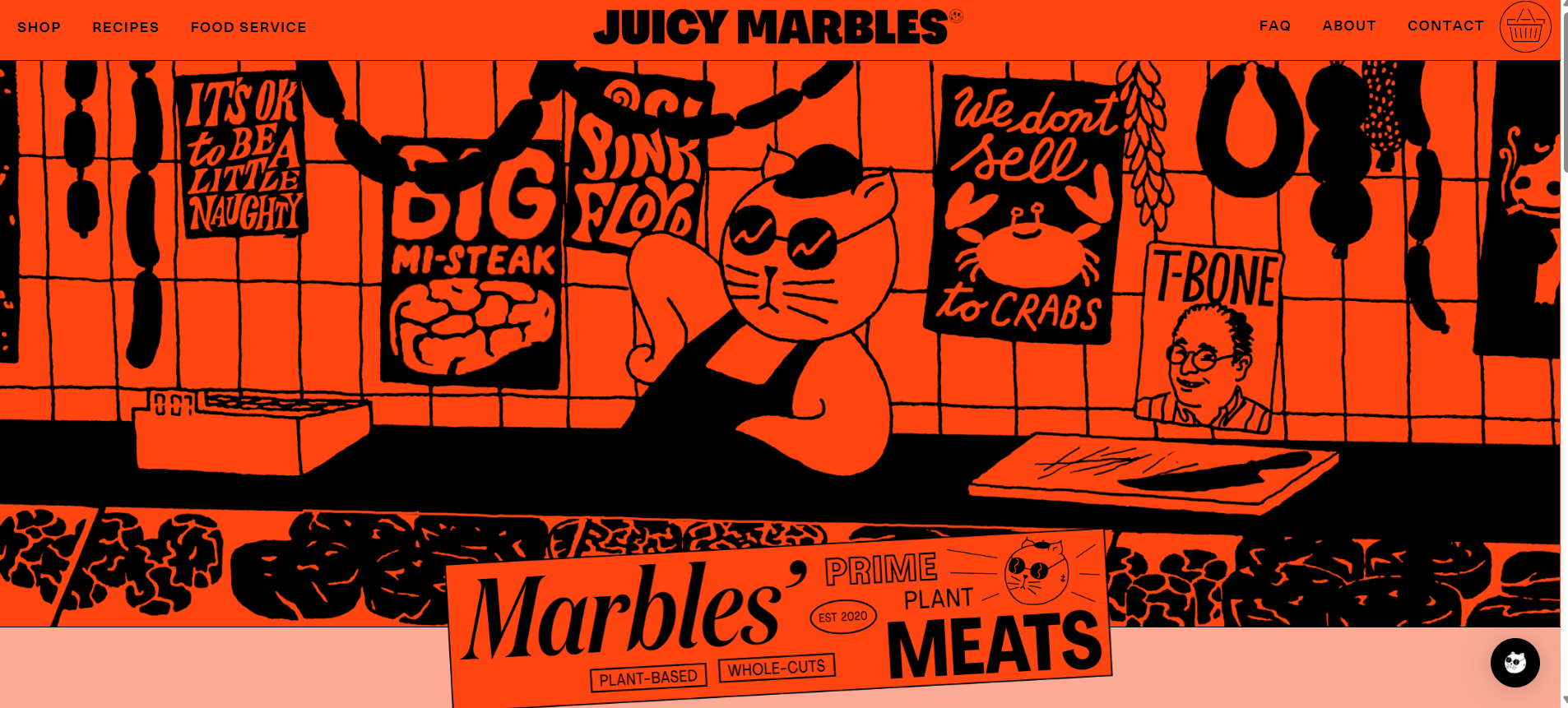
Vegan products are no longer a novelty. A decade ago, vegans didn’t have much choice when it came to plant-based alternatives to animal products. Today, store shelves are bursting with vegan sausages, burgers, and meatballs.
New players in the industry are finding it increasingly hard to stand out: even companies known for traditional products have entered the game by launching vegan lines, and the bar for taste and texture is now set very high.
As a result, revenues for many companies are declining rather than growing. The predictions are very optimistic – meat substitutes market is supposed to grow at 10.78% CAGR during 2025-2032 – yet still, we see market giants like Beyond Meat struggling to meet their income goals.
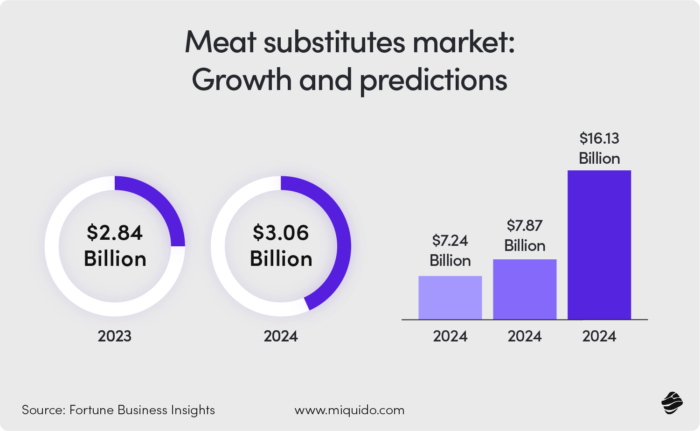
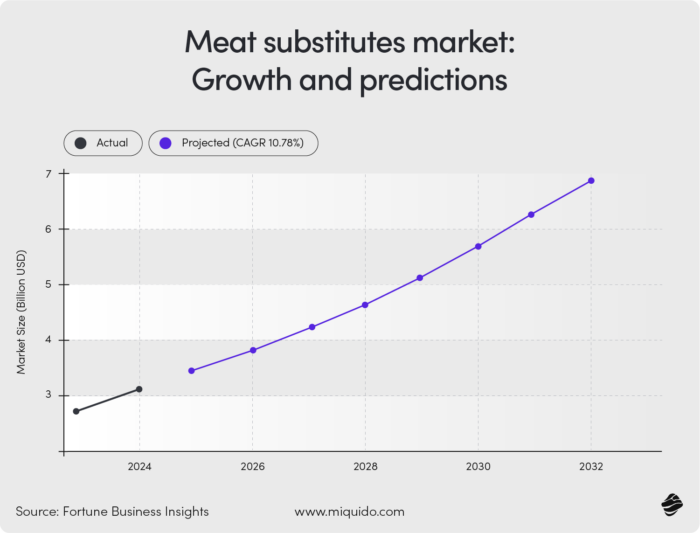
However, the niche in which Juicy Marbles found success had long remained untapped. And for good reason – vegan imitations of cuts of meat are a serious technical challenge, requiring sophisticated technology. The company, best known for its hyper-realistic vegan ribs and other plant based meat alternatives, capitalized on this fact and took the market by storm.
Its sales in the UK grew by a whopping 616% in 2024. Their clever, well-developed branding and viral promotion certainly helped – they were featured in Netflix’s You Are What You Eat, one of the platform’s 2024 hits.
Xampla
Location: Cambridge, UK
Launched: 2018
Specialization: Plant-based microencapsulation for nutrient protection
What makes them stand out: Natural, vegan alternative to synthetic encapsulants with proven efficacy at commercial scale
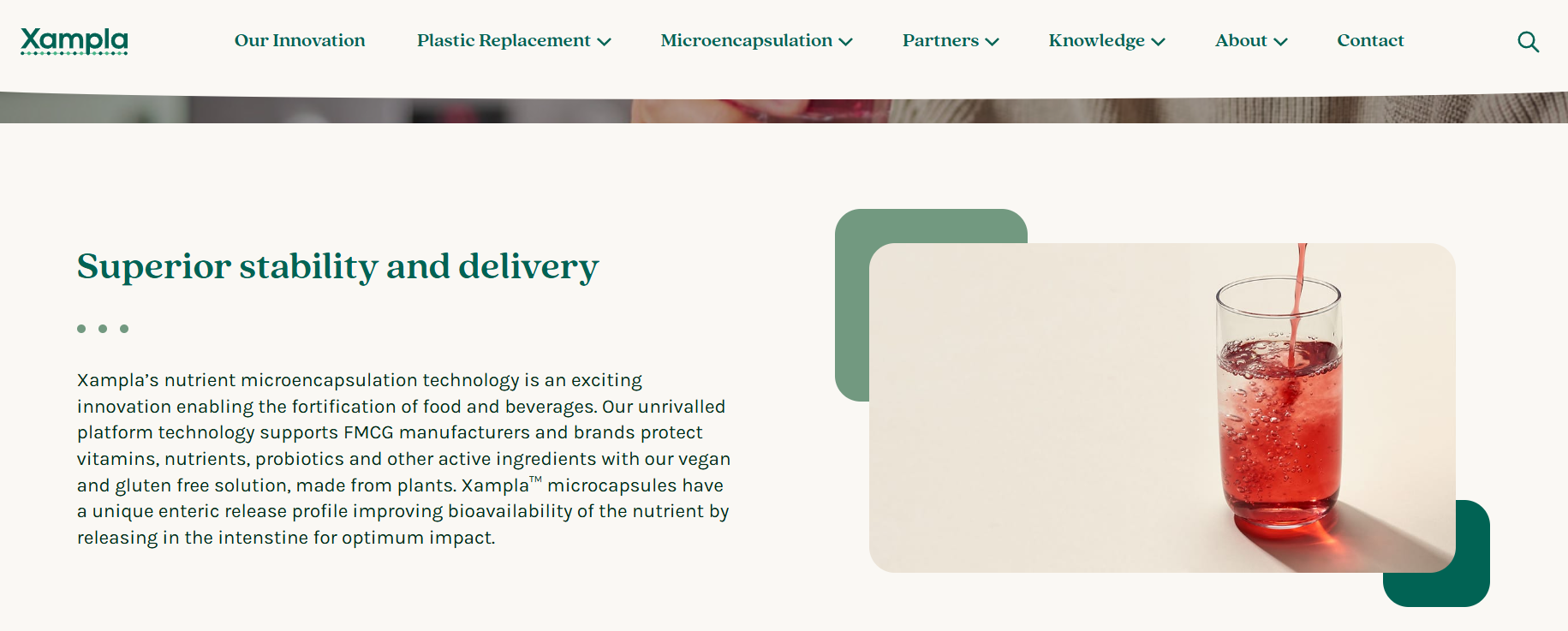
As consumers grow more health-conscious and food systems more complex, manufacturers face a persistent challenge: how to effectively deliver and preserve nutrients in everyday products. From vitamin degradation in beverages to probiotic instability in supplements, active ingredients are notoriously difficult to protect – especially in clean-label formulations.
Xampla, a UK-based materials science startup, is transforming how nutrients are delivered in food and drink. Their plant-based microencapsulation platform enables FMCG brands to protect vitamins, probiotics, and other actives in a fully vegan and gluten-free matrix – without synthetic polymers or additives. Unlike many conventional solutions, Xampla™ microcapsules offer enteric release, ensuring nutrients are absorbed where they matter most: in the intestine.
The technology has already proven its value at scale. In partnership with Britvic, Xampla demonstrated improved vitamin D shelf-life across several commercial formulations, enabling reduced overage and less waste. With global demand rising for natural, high-performance ingredients, Xampla’s solution offers a breakthrough path for companies looking to fortify products without compromising on sustainability or bioavailability.
Adamo Foods
Location: UK (based in Cambridge)
Launched: ~2023
Specialization: Mycelium-based steak analogues
What makes them stand out: They convert fungal mycelium into realistic, whole-cut meat alternatives, backed by £2 million seed funding
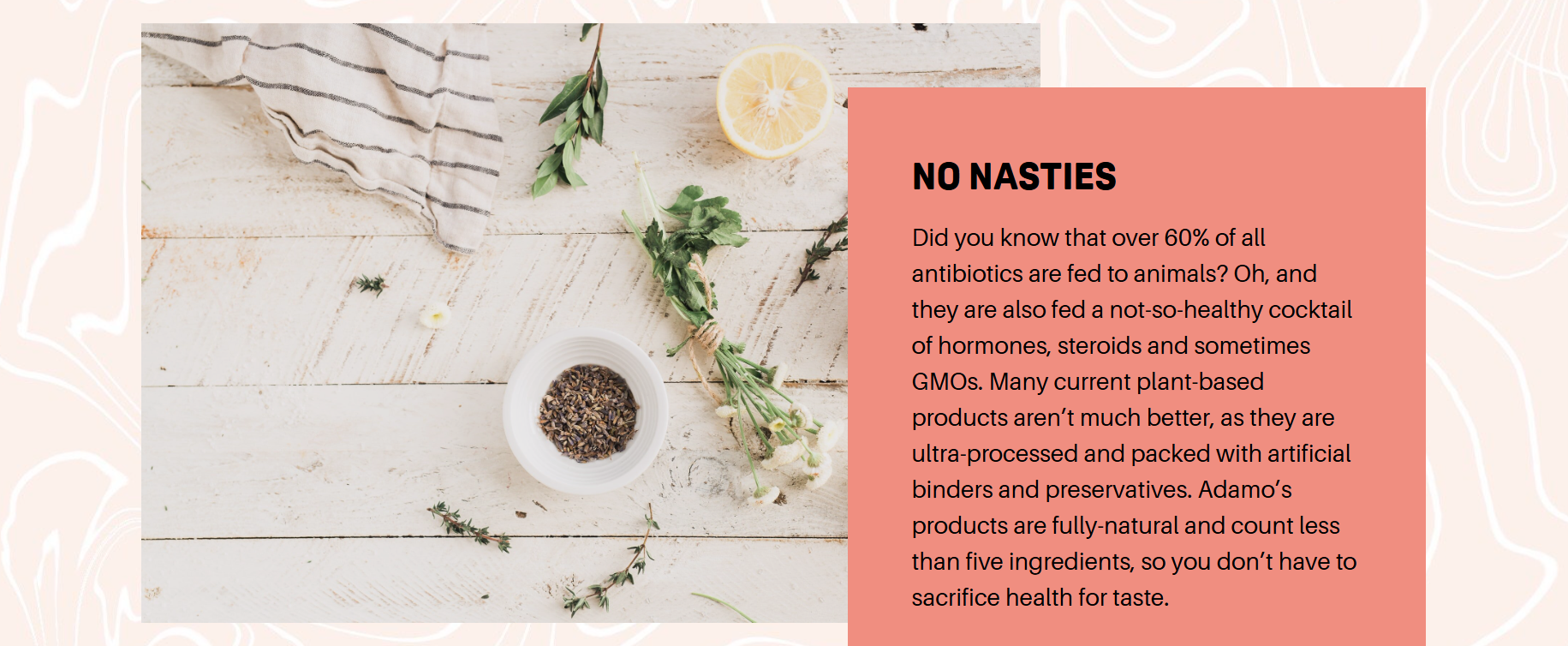
Another strong player in the vegan category also stands out for its ultra-realistic meat substitutes – but with an unusual base ingredient. Instead of relying on plant proteins like most producers, Adamo Foods chose a different path: their steaks are made from… mycelium, or, in another words, mushroom roots.
This relatively new food tech startup has already tested its products in the UK and is now aiming for a broader rollout across Europe. The company places strong emphasis on the quality and naturalness of its ingredients – something that too often takes a back seat in the race to create convincing vegan equivalents.
With their recently secured £2 million in seed funding, Adamo Foods is poised to take the EU market by storm – and global success may well be next. Considering that other major industry players like Beyond Meat are also investing in mycelium products, there is undoubtedly massive potential in this field.
Too Good To Go
Location: Copenhagen, Denmark
Launched: 2016
Specialization: App-based food waste marketplace
What makes them stand out: Enables consumers to rescue unsold food via real-time app, reducing waste and supporting over 100 million users across 19 countries
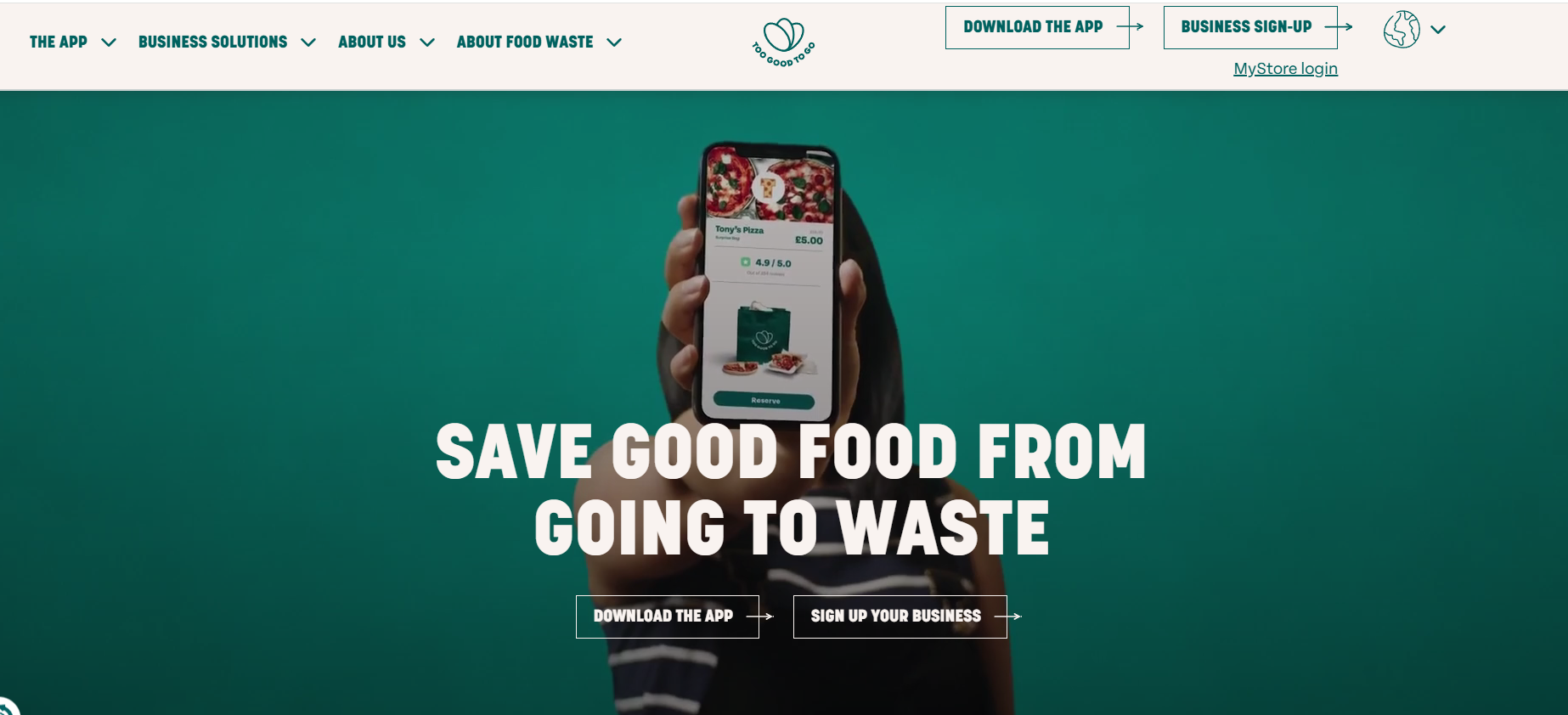
Reducing food waste is one of the key pillars of sustainability strategies in the EU and beyond. While education is crucial, encouraging people to make an effort in this area requires a tangible incentive.
Too Good To Go seems to have found the golden formula – one where reducing food waste is a win-win for both sides. Users save money by purchasing discounted food and meals. At the same time, local restaurants, bakeries, and shops earn money on food that would otherwise end up in the trash without generating any profit.
Founded in 2016 in Copenhagen, the company is now among the top foodtech startups and one of the fastest growing startups in zero waste category, with over 100 million registered users and 75,000 active business partners across 19 countries in Europe and North America. According to their website, since launch, the company has helped to save over 400 million meals from going to waste.
The app is one of a kind, filling a previously empty niche – which in itself has earned it a loyal user base. But when you look at the broader food tech space, its edge also becomes clear in terms of performance and user experience. As of July 2025, the app had a 4.9 rating on Google Play – by comparison, Uber Eats, Deliveroo, and Glovo were all below 4.8.
Foodnotify
Location: Vienna, Austria
Launched: 2014
Specialization: F&B management SaaS for hospitality
What makes them stand out: Offers an end-to-end platform for procurement, inventory, recipes, and analytics, helping prevent 65% of waste in hospitality
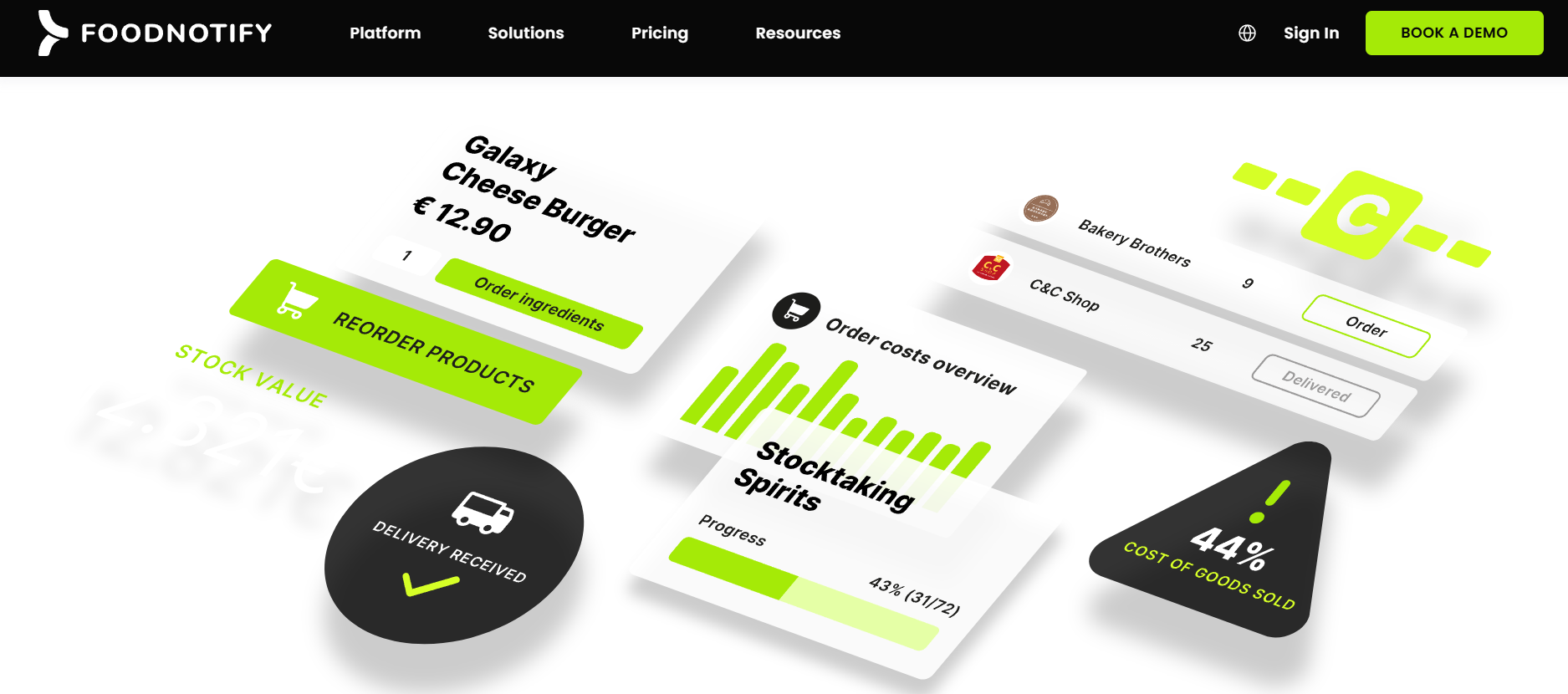
The food industry thrives on timing and precision – especially in the hospitality sector, where supply chains are notoriously fragile. Foodnotify recognized this pain point and stepped in with a smart, purpose-built digital platform. Their innovation targets one of the industry’s most persistent problems: balancing fluctuating demand without generating waste.
What sets this food technology company apart is its all-in-one system, designed specifically for hotels, restaurants, and catering services. With modules for order management, recipe planning, inventory control, and analytics, the platform gives businesses full visibility over their stock – minimizing both shortages and over-ordering. This not only improves day-to-day operations but also helps teams make more informed, data-driven decisions.
By reducing food waste through smarter supply chain coordination, the company is driving a meaningful shift in how the hospitality industry approaches resource management. In a space where every plate and portion matters, Foodnotify is proving that digital transformation can be both profitable and planet-friendly.
Zebra CropBank
Location: Nigeria
Launched: ~2022
Specialization: Micro-scale storage and processing “banks”
What makes them stand out: Deployed modular container-based infrastructure enabling farmers to store, sell, and use crops as collateral, cutting post-harvest loss
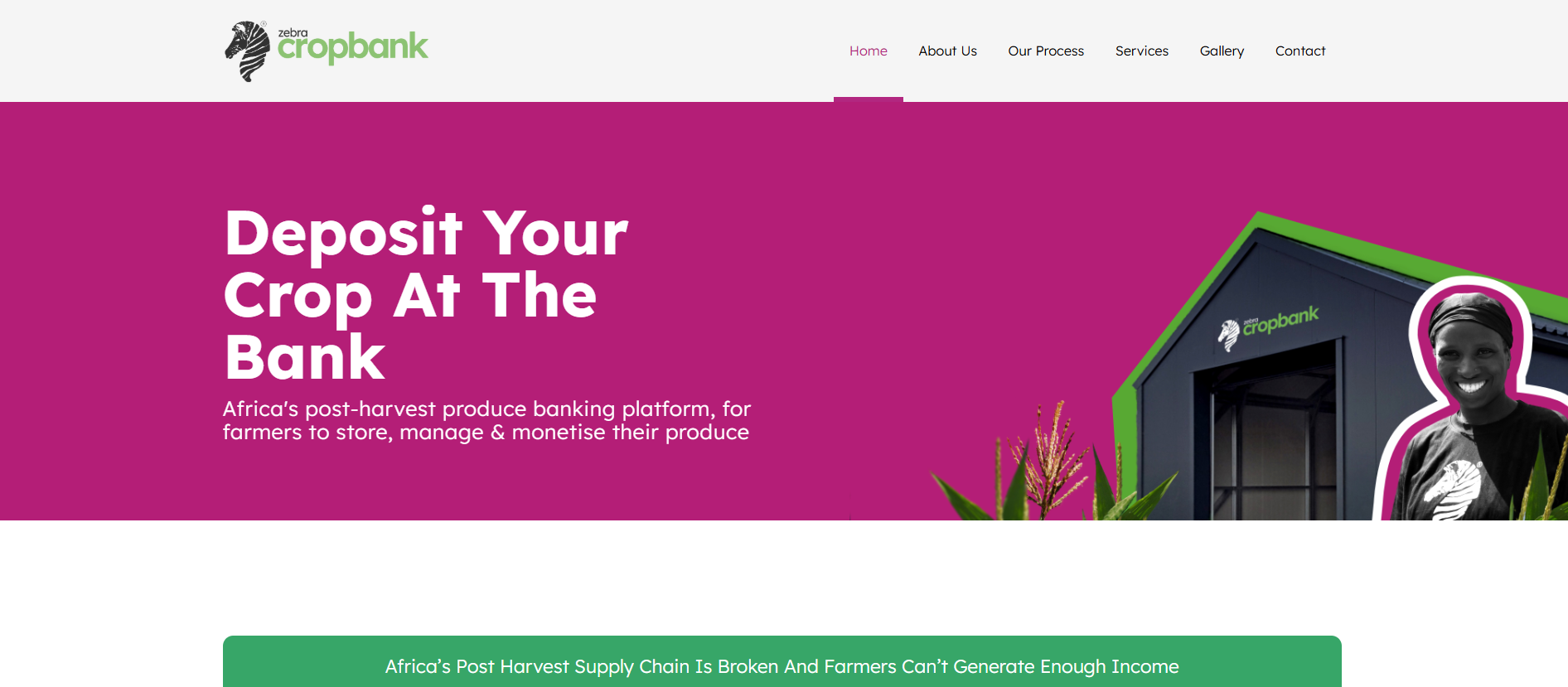
How is it possible that in a country as incredibly fertile as Nigeria, the majority of crops for the food industry are imported, while local farmers throw away surplus harvests? This paradox of abundance is the result of a series of geopolitical shifts that ultimately left agricultural workers in a difficult position: on one hand, a lack of storage space and gradual sales channels, and on the other, the pressure to sell at extremely low margins dictated by intermediaries.
CropBank was created in response to these challenges. This Nigerian start up focuses on building micro-scale, last-mile storage and processing infrastructure to help farmers reduce post-harvest losses and increase their income. By installing modular “Banks” near farms – converted cargo containers that extend the shelf life of crops – CropBank enables farmers to store, manage, and sell their produce on better terms.
This system empowers young farmers to become price makers, avoid middlemen, and even use their stored crops as collateral for credit, supporting debt financing. By combining technology with local infrastructure, the startup supports farmers in taking control of their earnings and simultaneously building a more sustainable local food chain.
FarmiZen
Location: Bengalore, India
Launched: ~2023
Specialization: Direct-to-consumer proximity farming platform
What makes them stand out: Shortens the supply chain by enabling harvest-on-demand, pre-order, subscription, and “tribes” for food delivery without intermediaries

Life as a farmer in the 21st century is no easy feat. It’s a complex mix of challenges: strict regulations (especially within the EU), increasing competition, unpredictable growing conditions driven by climate change, and retailers pushing down margins – all of which erode the profitability of crop production.
The struggle is even greater for small-scale farms, where the focus is on quality, biological diversity, and organic practices. Competing with large-scale producers through traditional sales channels is often simply not viable. The numbers speak for themselves – commercial small-scale farms declined by 44% between 2007 and 2022, with employment in this segment dropping by nearly 40%.
FarmiZen offers an alternative – one that benefits farmers’ income, the environment, and their customers’ well-being. Built on the idea of proximity, the platform eliminates middlemen and shortens the supply chain to its bare minimum. Farmers can deliver peak freshness, with produce literally collected the moment an order is placed, instead of wilting on store shelves. Naturally, this also means significantly lower waste.
In addition to products harvested to order, users can choose pre-order and subscription models, which give farmers much greater predictability than relying on third-party demand. Interestingly, users can also join so-called tribes – self-organized communities connected to responsible farmers. This model unlocks free food delivery and removes the minimum order barrier, making truly local and sustainable agriculture more accessible than ever. Customers can enjoy non gmo, healthy, organic food, and producers raise their margins in a sustainable way.
Meatable
Location: Delft, Netherlands
Launched: 2018
Specialization: Cultivated (cell‑based) pork and beef
What makes them stand out: Uses animal cell culture to produce real meat with no animal slaughter, recently raised significant series B funding
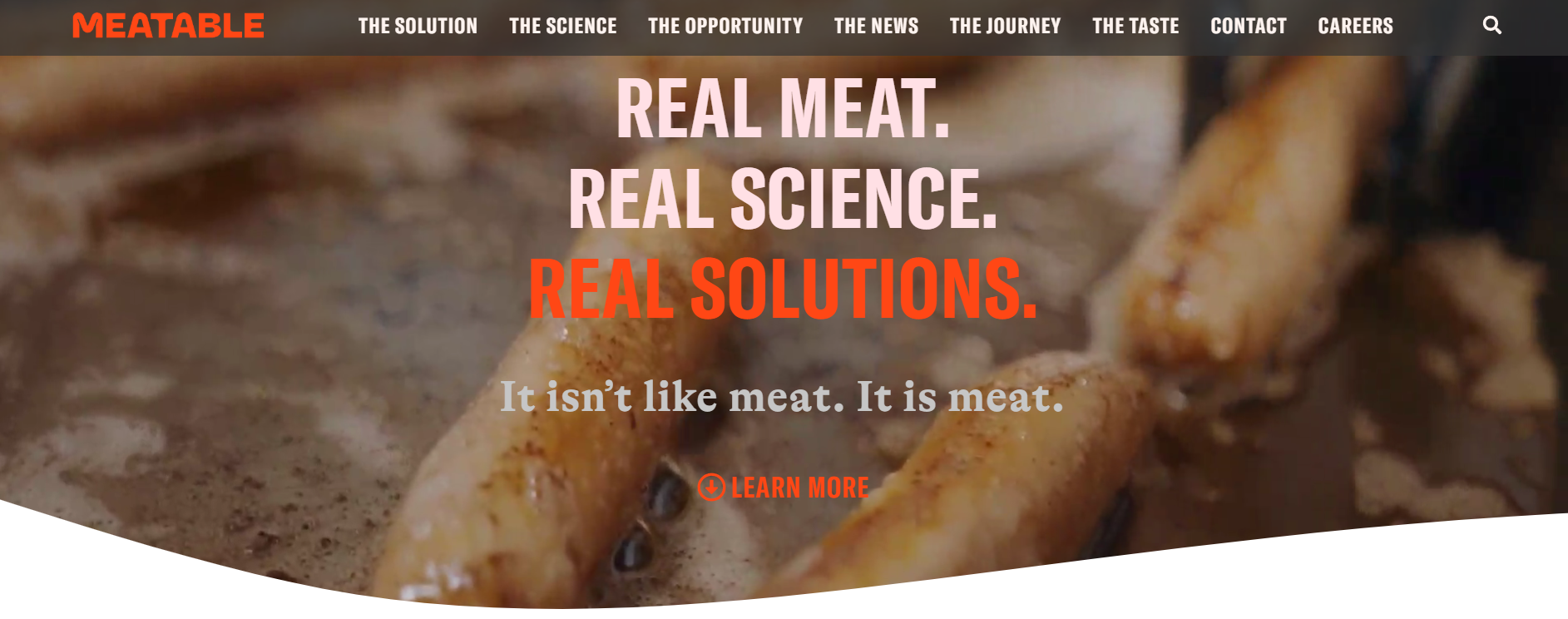
Lab-grown meat was once a sci-fi concept met with skepticism and fear. Today, the idea is no longer surprising – on the contrary, more and more specialty food makers are entering this space. A standout example is Meatable, whose current focus is on cultivated pork products.
The company is one of the first European food and beverage startups to promote cultivated meat at scale. Meatable showcased its hybrid sausage during Europe’s first pre-approval tasting in 2023. The product features 28% cultivated pork fat blended with plant-based components, without artificial ingredients.
Although Meatable’s current range is limited, its proprietary technology is designed to support fast and efficient production of a wide variety of meats – including beef, lamb, fish, or virtually any cell-based meat. The startup’s production speed is impressive: it takes just four days to create a cultivated meat product. That’s a massive difference compared to traditional farming, which usually requires several months of animal rearing.
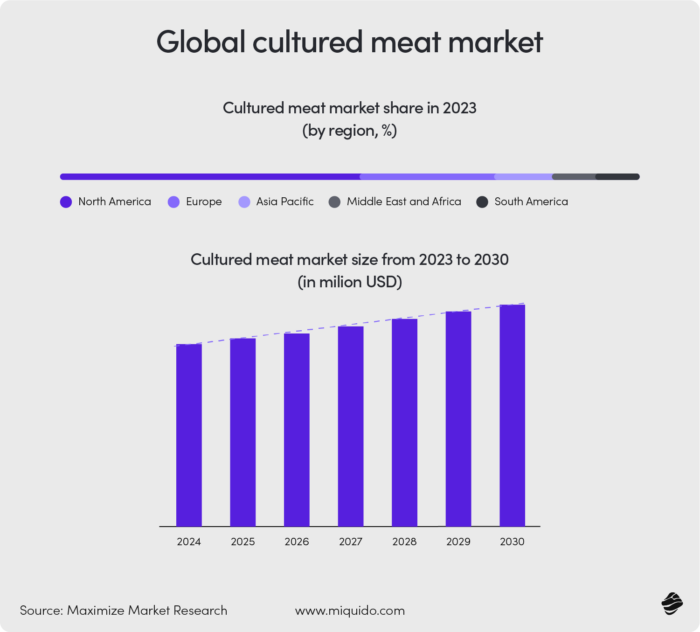
This type of meat is not only completely cruelty-free, but also comes with a dramatically smaller carbon footprint – important in an industry that is one of the largest contributors to global greenhouse gas emissions. At the same time, Meatable’s technology offers a scalable path to feeding a growing population while addressing climate concerns more effectively than diet changes alone. Cultivated meat delivers nutrient-rich protein with lower land use and more predictable emissions savings, without requiring major lifestyle shifts.
Investors see the value in this mission – since launching in 2018, Meatable has secured €97 million euros in backing from prominent venture funds. Market forecasts echo that optimism, projecting a 17.2% CAGR in the cultivated meat sector between 2024 and 2030.
Holloid
Location: Vienna, Austria
Launched: 2020
Specialization: AI-driven inline holographic microscopy
What makes them stand out: Its patented, 24/7 real-time Industrial IoT microscope monitors bioreactor colloids without labels or expert staff

Quality assurance in food and bio-based production still relies heavily on delayed lab results and manual oversight. In fast-moving environments like bioreactors, this lack of real-time visibility can lead to inefficiencies, quality loss, and unnecessary waste. As precision fermentation and cell-based processes scale, the need for continuous, automated monitoring becomes increasingly urgent.
Holloid addresses this with a patented, AI-powered in-line holographic microscopy system that delivers 24/7, real-time insights into colloids like cells and microorganisms. Spun out of a decade of research at BOKU Vienna, the startup combines proprietary hardware and software to track size, shape, velocity, and interactions – without labels or expert intervention. This gives producers the ability to adjust or automate processes on the fly, improving both output and safety.
What makes Holloid stand out is its ability to image living systems as they evolve, without disrupting production. As demand for smarter, bio-based manufacturing grows – across foodtech, pharma, and energy – Holloid’s high-throughput, real-time data infrastructure could become a core enabler of next-gen bioprocessing. It brings tangible benefit, saving up to €32 million annually in public health costs by rapidly identifying waterborne contaminants.
AgriSound
Location: York, UK
Launched: 2020
Specialization: Acoustic IoT sensors for pollinator monitoring
What makes them stand out: Their AI-powered “Polly” devices detect pollinator activity in real time to guide precision interventions and support biodiversity
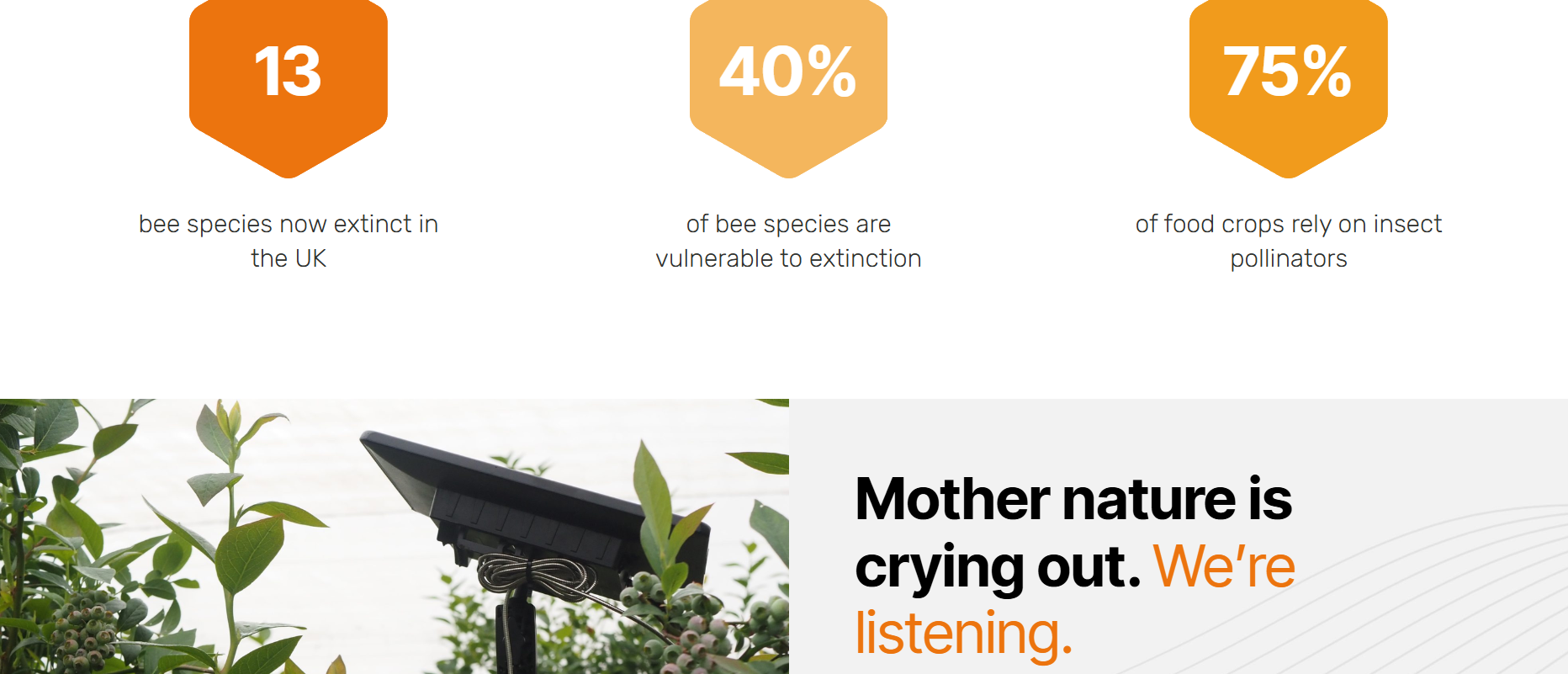
When changes in the natural environment become visible to the naked eye, it usually means they’ve already progressed too far. The warning signs of environmental disruption are often heard long before they are seen. Scientists have long known that soundscapes provide a rich source of data about endangered species and the impact of climate change on ecosystems.
Special attention must be paid to the buzzing of bees and other insect pollinators, as 75% of food crops depend on their activity. The equation is simple: as these species disappear, so does our global food security. Agrisound has decided to tackle this challenge head-on, using advanced technology for precise analytics and real-time tracking of key pollinator species.
The startup, selected for the 2025 Food Accelerator Network programme, is a vertical AI company that combines acoustic monitoring with proprietary AI algorithms to improve precision pollination and monitor habitats on a global scale. Its flagship product, “Polly”, is an in-field sensor that tracks pollination events and detects zones with low pollinator activity.
This empowers growers to take targeted action, enhancing yields, biodiversity, and the long-term sustainability of food systems. With a passionate team of scientists and engineers decoding the sounds of nature, Agrisound is helping to reverse the decline of pollinators and secure the future of both farming and the planet.
Key challenges for the food and beverage startups in 2025
The foodtech industry is currently one of the fastest growing sectors globally. Food tech startups have many opportunities to seize – eating habits are changing rapidly on a global scale. On the other hand, in recent years, areas like food delivery and quick commerce have become increasingly saturated, and the nature of online platforms in this space makes it difficult to stand out.
What challenges must entrepreneurs face if they want to make their mark in the foodtech world?
Decrease in demand for vegan substitutes of meat and dairy
In the last decade, the number of vegans has grown at an impressive rate. In the U.S., the number of self-identified vegans jumped from around 290,000 in 2004 to nearly 10 million by 2019 – a thirty-fold increase. In Europe, approximately 2.6 million people (3.2% of the population) identified as vegan in 2023, and projections estimate that number could reach 8.3 million by 2033.
Still, the growth rate is expected to slow unless plant-based products become more accessible, not just in terms of availability in large supermarket chains, but also in terms of price. In the past few years, there has been significant progress: vegan food products have moved beyond niche organic stores and taken their place on mainstream supermarket shelves. Major food manufacturers have introduced their own plant-based substitutes, significantly lowering the price barrier.
Is the future in mycelium-based meat? Or perhaps in cultivated meat? One thing is certain – with climate zones shifting, many areas responsible for exporting key basic crops used in plant-based food production may soon become unviable. A clear example is Brazil and its soybean farming. In such conditions, new solutions will be essential, potentially giving rise to a new wave of biotech startups working on high-protein and climate-resilient alternatives.
Increasingly saturated market
The food market today is saturated in many respects – product variety is immense, and the food app ecosystem (including food delivery, diet planning, e-commerce, and m-commerce) boomed over the last several years. Those online marketplaces that succeeded during this time have maintained leading positions, making it difficult for newcomers to compete.
This is especially evident in the food delivery segment, long dominated by giants like UberEats, Deliveroo, Glovo, and DoorDash in the U.S. These leading providers are constantly expanding their range of services beyond the food delivery app features, aiming to become food super apps. Many originated from mobility platforms, and are now heading toward multi-service ecosystems that include table reservations and more. For instance, in 2025, Uber introduced such a feature, and DoorDash is expected to follow.
Soon, these dominant platforms may also incorporate features currently offered by specialized apps, such as discounted food sales to reduce waste. However, consumer awareness around food and beverage is growing, which means market demands and expectations are evolving – opening doors for exciting innovation by agile new players. Those who enable deeper personalization – for example, enabling choosing gluten free, low sugar and other products – may gain users’ hearts faster.
Climate change and geopolitics impacting food supply chains
This challenge, specific to farmers and food manufacturers, is only expected to intensify. With changing weather patterns, we may see a decrease in both crop yields and animal production – or at the very least, reduced predictability. In such a situation, companies have a few options: increase prices, modify formulations and suppliers (for manufacturers), or change cultivation methods (for farmers).
They can also turn to technology tools powered by artificial intelligence and machine learning, which allow them not only to put out fires but also to act preventively. For farmers, these tools include data analytics platforms for monitoring soil, water, pollinators, and insects, helping them anticipate and eliminate issues before they escalate.
For manufacturers, solutions that support supply chain resilience through real-time data analysis and smart recommendations for adjusting raw material orders or vendor structures may become essential – especially in the face of increasing geopolitical uncertainty and disrupted access to commodities like palm oil.
Extreme weather and its impact on food safety and accessibility
A challenge closely tied to the previous one. Worsening extreme weather, from droughts to floods, is a direct result of climate change and increasingly threatens food safety and accessibility, particularly when extreme heat comes into play.
Food tech startups entering the market in 2025 could – and should – focus on this issue by developing AI-powered technologies for food logistics, quality control, and cooling systems that preserve meat products, plant-based substitutes, and other sensitive food items during transportation and storage.
Food tech companies of the future: fill the market gaps
With a market rich in different ingredients, bold ideas, and hungry users, the foodtech table is far from full. There are still plenty of niches to conquer – and as the saying goes, appetite comes with eating.
Whether you want to employ technology to revolutionize a particular sector of food manufacturing or rather looking to bring a new food tech app or one platform solution to the market, we may be a match! Having worked with Herbalife and HelloFresh, we can transfer industry knowledge to your project, using frameworks like Flutter for food delivery apps and food tech apps to guarantee best performance and speed.
And with our AI Kickstarter framework, introducing AI innovation in your food tech project may cost even 60% less than traditional development. Let’s grab your piece of the market cake together and implement succesful ecommerce and mcommerce strategies or manufacturing tools that make a difference.

![[header] top 10 foodtech startups to watch in 2025](https://www.miquido.com/wp-content/uploads/2025/07/header-top-10-foodtech-startups-to-watch-in-2025.jpg)
